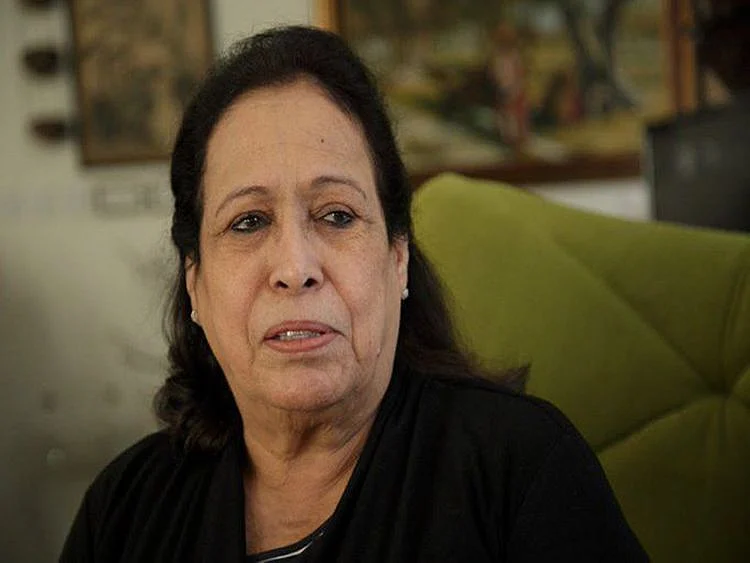Kuwaiti actress Hayat Al Fahad returns with new period drama
‘Sanawat Al Jarish’ is based on the Second World War and its impact on the Gulf

After her role as an aristocratic woman in the series ‘Umm Haroon’, which drew flak last Ramadan, Kuwaiti television and theatre stalwart Hayat Al Fahad has announced her new upcoming Ramadan drama series, ‘Sanawat Al Jarish’, Arabic for Years of Al Jarish.
The drama focuses on the years of drought faced in the Gulf region during the Second World War (1939-1945).
Dropping the poster of the show on her Instagram account, the war setting features a line from a poem by Mahmoud Darwish, a Palestinian poet and author, which reads: “The war would end, the leaders shake hands, and that woman will remain waiting for her martyred son.”
Darwish had used Palestine as a metaphor for the loss of the sacred land, the birth and resurrection, along with the anguish of dispossession and exile.
Al Fahad captioned her post, writing: “Our next journey, God willing, will takes us into the past with the series ‘Sanawat Al Jarish’. We want to tell you a story based on reality and to tell our children and grandchildren that the lives of our ancestors were never easy and that wars are a tragedy for humanity.”
Critics expect that like ‘Umm Haroon’, which featured the Gulf’s Jewish communities in the 1940s, ‘Sanawat Al Jarish’ could also rustle up some feathers.
‘Umm Haroon’ was also set in the 1940s, in what is now modern-day Kuwait, and followed the life of the titular character, who is a Jewish obstetrician, who finds her once pluralistic community turning against her and is increasingly marginalised from the tight-knit neighbourhood, due to a combination of seismic news events, an interfaith romance and an inter-generational conflict between her and her children.
Critics picked the show apart on political grounds. The series was accused of whitewashing certain crimes against the Palestinians and trying to rewrite history.
A particular scene in its first episode sparked the accusation of altering history. It depicted Umm Haroon and fellow adherents listening to a radio report that heralds the establishment of Israel in 1948. The point of contention was a line in the news report that stated the nation was created “at the completion of the British mandate on the land of Israel,” instead of what critics say was originally the territory of Palestine.
The elebrated Kuwaiti actress is not new to controversy. Last year, she grabbed headlines for a call to deport expatriates in Kuwait to curb the spread of the novel coronavirus. In a phone-in interview with Kuwaiti TV station ATV, the veteran actress lashed out at the illegals, blaming them for problems in her country.
“We are fed up. When we fall sick, there are no [enough] hospitals,” she said. “How come their countries don’t want them back while we keep them? I am not against humanity, but we’ve come to a stage when we are quite fed up. Send them out!”
Sign up for the Daily Briefing
Get the latest news and updates straight to your inbox
Network Links
GN StoreDownload our app
© Al Nisr Publishing LLC 2025. All rights reserved.